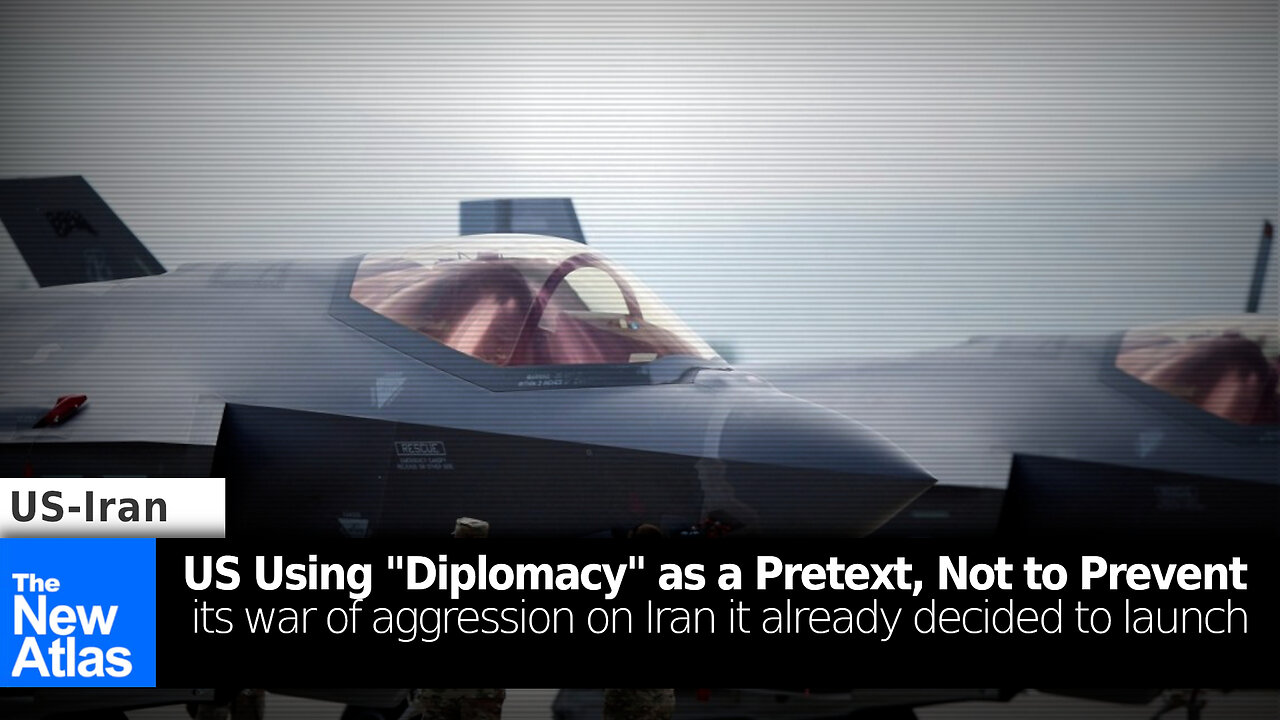
This article was originally published on Substack on May 4, 2022
The most egregious and blatant official U.S. disinformation campaign in years took place three weeks before the 2020 presidential election. That was when dozens of former intelligence officials purported, in an open letter, to believe that authentic emails regarding Joe Biden's activities in China and Ukraine, reported by The New York Post, were "Russian disinformation.” That quasi-official proclamation enabled liberal corporate media outlets to uncritically mock and then ignore those emails as Kremlin-created fakes, and it pressured Big Tech platforms such as Facebook and Twitter to censor the reporting at exactly the time Americans were preparing to decide who would be the next U.S. president.
The letter from these former intelligence officials was orchestrated by trained career liars — disinformation agents — such as former CIA Director John Brennan and former Director of National Intelligence James Clapper. Yet that letter was nonetheless crucial to discredit and ultimately suppress the New York Post's incriminating reporting on Biden. It provided a quasi-official imprimatur — something that could be depicted as an authoritative decree — that these authentic emails were, in fact, fraudulent.
After all, if all of these noble and heroic intelligence operatives who spent their lives studying Russian disinformation were insisting that the Biden emails had all of the "hallmarks" of Kremlin treachery, who possessed the credibility to dispute their expert assessment? This clip from the media leader in spreading this CIA pre-election lie — CNN — features their national security analyst James Clapper, and it illustrates how vital this pretense of officialdom was in their deceitful disinformation campaign:
This same strategic motive — to vest accusations of “disinformation” with the veneer of expertise — is what has fostered a new, very well-financed industry heralding itself as composed of “anti-disinformation" scholars. Knowing that Americans are inculcated from childhood to believe that censorship is nefarious — that it is the hallmark of tyranny — those who wish to censor need to find some ennobling rationale to justify it and disguise what it is.
They have thus created a litany of neutral-sounding groups with benign names — The Atlantic Council, the Institute for Strategic Dialogue, various "fact-checking” outfits controlled by corporate media outlets — that claim to employ “anti-disinformation experts” to identify and combat fake news. Just as media corporations re-branded their partisan pundits as "fact-checkers" -- to masquerade their opinions as elevated, apolitical, authoritative decrees of expertise -- the term "disinformation expert" is designed to disguise ideological views on behalf of state and corporate power centers as Official Truth.
Yet when one subjects these groups to even minimal investigative scrutiny, one finds that they are anything but apolitical and neutral. They are often funded by the same small handful of liberal billionaires (such as George Soros and Pierre Omidyar), actual security state agencies of the U.S., the UK or the EU, and/or Big Tech monopolies such as Google and Facebook.
Indeed, the concept of “anti-disinformation expert” is itself completely fraudulent. This is not a real expertise but rather a concocted title bestowed on propagandists to make them appear more scholarly and apolitical than they are. But the function of this well-funded industry is the same as the one served by the pre-election letter from “dozens of former intelligence officials": to discredit dissent and justify its censorship by infusing its condemnation with the pretense of institutional authority. The targeted views are not merely wrong; they have been adjudged by official, credentialed experts to constitute "disinformation.”
This scam is the critical context for understanding why the Biden Administration casually announced last week the creation of what it is calling a "Disinformation Board” inside the Department of Homeland Security (DHS). There is no conceivable circumstance in which a domestic law enforcement agency like DHS should be claiming the power to decree truth and falsity. Operatives in the U.S. Security State are not devoted to combatting disinformation. The opposite is true: they are trained, career liars tasked with concocting and spreading disinformation. As Politico's Jack Schafer wrote:
Who among us thinks the government should add to its work list the job of determining what is true and what is disinformation? And who thinks the government is capable of telling the truth? Our government produces lies and disinformation at industrial scale and always has. It overclassifies vital informationto block its own citizens from becoming any the wiser. It pays thousands of press aides to play hide the salami with facts….Making the federal government the official custodian of truth would be like Brink’s giving a safe-cracker a job driving an armored car.
The purpose of Homeland Security agents is to propagandize and deceive, not enlighten and inform. The level of historical ignorance and stupidity required to believe that U.S. Security State operatives are earnestly devoted to exposing and decreeing truth — as CNN's Brian Stelter evidently believes, given that he praised this new government program as “common sense” — is off the charts. As Jameel Jaffer, formerly of the ACLU and now with the Columbia’s Knight First Amendment Institute put it, most troubling is “the fact that the board is housed at DHS, an especially opaque agency that has run roughshod over civil liberties in the past.”
Typically, any attempt to apply George Orwell's warning novel 1984 to U.S. politics is reflexively dismissed as hyperbolic: a free and democratic country like the United States could not possibly fall prey to the dystopian repression Orwell depicts. Yet it is quite difficult to distinguish this “Disinformation Board” from Ingsoc's Ministry of Truth. The protagonist of Orwell's novel, Winston Smith, worked in the Ministry of Truth and described at length how its primary function was to create official versions of truth and falsity, which always adhered to the government's needs of the moment and were subject to radical change as those interests evolved.
That the Board will be run by such a preposterous and laughable figure as Nina Jankowicz — a liberal cartoon, a caricature of a #Resistance Twitter fanatic who spent 2016 posting adolescent partisan tripe such as: “Maybe @HillaryClinton's most important point so far: ‘A @realDonaldTrump presidency would embolden ISIS.’ #ImWithHer” — has, in some sense, made this board seem more benign and harmless. After all, how nefarious and dangerous can a board be when it is governed by a person as frivolous and banal as this, calling herself “the Mary Poppins of disinformation”?
But just as banality can be a vehicle for evil, it can also be a vehicle for repression and tyrannical control. Jankowicz, reacting with horror to Elon Musk's vow to restore a modicum of free speech to the internet, just last week on NPR touted the virtues of censorship: "I shudder to think about if free speech absolutists were taking over more platforms, what that would look like for the marginalized communities ... which are already shouldering ... disproportionate amounts of this abuse," she said.
Her just-released book, entitled “How to Be A Woman Online: Surviving Abuse and Harassment, and How to Fight Back,” is full of justifications for online censorship. Last year, she condemned me and Fox News host Tucker Carlson as “disgusting” for the crime of criticizing the fabrications of then-New York Times front-page reporter Taylor Lorenz, on the ground that powerful professional women (with the right political ideology) must not be criticized because such accountability results in harassment.
When controversy over this new Disinformation Board erupted, CNN claimed that Jankowicz was “a disinformation expert with experience working on Ukraine and Russia issues.” Homeland Security Secretary Alejandro Mayorkas appeared on CNN to exalt her as “eminently qualified, a renowned expert in the field of disinformation." What does that even mean? What is the “field of disinformation,” and how does one become an “eminently qualified renowned expert” in it? Is there some graduate program or new field of discipline one must study? Is there a licensing board that certifies one as a "disinformation expert" or scholarship one demonstrates? Which credentials constitute "expertise” in disinformation?
This is all a sham: the whole industry. The very idea that Jankowicz — draping herself in #Resistance cliches, agitating for online censorship, and neurotically posting liberal Twitter hashtags — is an expert in anything, let alone one who identifies and combats disinformation, is laughable on its face. And that is true of everyone who is claiming this pompous, fictitious expertise for themselves.
Far worse than Jankowicz's fixation on censoring those with whom she disagrees — now a staple of liberal politics — is the fact that this new Disinformation Czar has herself ratified and helped spread virtually every disinformation campaign concocted by the union of the Democratic Party and corporate media over the last five years. Indeed, the only valid basis for calling her a "disinformation expert” is that she has spread disinformation with such gusto. The most notorious of those was the pre-election lie that the authentic Hunter Biden laptop was “disinformation.” She also decreed falsely that the origins of COVID were definitively proven to be zoonotic and could not have come from a lab leak, was a frequent and vocal advocate of the fraudulent Steele Dossier, and repeatedly pronounced as true all sorts of Trump/Russia collusion conspiracy theories which Robert Mueller, after conducting an intense 18-month investigation, rejected as lacking evidence to establish their truth.
That nobody should want the U.S. Government let alone Homeland Security arrogating unto itself the power to declare truth and falsity seems self-evident, particularly when run by this uniquely ill-suited Democratic Party operative. But beyond the abstract creepiness of the government assuming this role, is there anything concretely dangerous about it, or is it an overreaction, a form of fear-mongering, to depict this as some uniquely threatening development?
Integrating this fraudulent "disinformation" industry into the U.S. security state is indeed pernicious in concrete and serious ways. If anything, the dangers of this development have been under-appreciated, not exaggerated.
The purpose of empowering the Department of Homeland Security to decree what is and is not “disinformation” is to bestow all government assertions with a pretense of authoritative expertise and official sanction and, conversely, to officially decree dissent from government claims to be false and deceitful. Once Homeland Security declares a view to be "disinformation,” then many corporate media outlets, deferential to the claims of the U.S. Security State, will uncritically cite that pronouncement as dispositive, while Big Tech platforms will be pressured to ban views deemed by DHS to be "disinformation” — exactly the way they accepted the lie that the Biden archive was "disinformation” because this lie emanated from official government “experts.”
For the last eighteen months, Democrats have used their majority power in Washington to summon tech CEOs before them and demand of them — upon pain of suffering legal and regulatory reprisals if they disobey — that more censorship be imposed in the name of banning “disinformation.” Large majorities of Democrats believe that Big Tech (76%) and the government (65%) should take steps to limit freedom of information online if doing so is necessary to stop “disinformation.”

One problem which emerges with this censorship regime is the question of how “disinformation” is determined or, more aptly, who determines it? This new Disinformation Board is intended to place that immense power in the hands of the U.S. Security State, such that it can now place an official “disinformation” designation over any idea or view it wishes to discredit. That, in turn, will make it very difficult for corporate media outlets to allow it to be aired without deferring to the official Homeland Security decree and, more importantly, will constitute enormous pressure on Big Tech to prohibit that idea from being defended on the ground that such ideas have now been officially declared by DHS's “experts” to constitute “disinformation.”
The potential ramifications of spreading what Homeland Security decrees to be “disinformation” could extend far beyond being censored. Countries around the world are rapidly adopting laws that would outlaw or even criminalize the publication of disinformation. “A criminal code provision that Greece’s parliament adopted on November 11, 2021, makes it a criminal offense to spread 'fake news,’” noted Human Rights Watch in November. In 2020, the Canadian government, citing COVID, proposed legislation “to make it an offence to knowingly spread misinformation that could harm people.” Authorities throughout the EU and in the UK have proposed or passed laws and regulations designed to force social media platforms to ban “disinformation,” and carry stiff fines and other penalties for failing to do so. Numerous countries now have laws making it a crime to host or spread “disinformation.”

While the First Amendment's free speech guarantee makes enactment of such a criminal scheme in the U.S. more difficult, there is clearly momentum for far greater government action to restrict and punish whatever is deemed to be “disinformation.” Barack Obama delivered a speech about disinformation on April 21 at Stanford University. While heralding himself as “pretty close to a First Amendment absolutist,” he nonetheless insisted that the current censorship regime imposed by Big Tech is insufficient, and that not only must they do more to solve the problem of what he calls "harmful content,” so, too, must the state:
But while content moderation can limit the distribution of clearly dangerous content, it doesn’t go far enough. Users who want to spread disinformation have become experts at pushing right up to the line of what at least published company policies allow….
These decisions affect all of us, and just like every other industry that has a big impact in our society, that means these big platforms need to be subject to some level of public oversight and regulation…. A regulatory structure, a smart one, needs to be in place, designed in consultation with tech companies, and experts and communities that are affected, including communities of color and others that sometimes are not well represented here in Silicon Valley, that will allow these companies to operate effectively while also slowing the spread of harmful content.
That is an explicit call for the U.S. Government to take steps to require more censorship of the internet in the name of fighting “disinformation.” On the exact same day the former president delivered that speech, Hillary Clinton took to Twitter to announce: “For too long, tech platforms have amplified disinformation and extremism with no accountability. The EU is poised to do something about it. I urge our transatlantic allies to push the Digital Services Act across the finish line and bolster global democracy before it's too late.” Four days later, she returned to Twitter to celebrate the enactment by the EU of what The New York Times called “landmark legislation that would force Facebook, YouTube and other internet services to combat misinformation.” In particular, the new legal framework forces social media companies to remove any content which the state deems harmful:
The law, called the Digital Services Act, is intended to address social media’s societal harms by requiring companies to more aggressively police their platforms for illicit content or risk billions of dollars in fines. Tech companies would be compelled to set up new policies and procedures to remove flagged hate speech, terrorist propaganda and other material defined as illegal by countries within the European Union.
It was just one week after both Obama and Clinton called for greater government action against online disinformation that Homeland Security announced it is “standing up a new Disinformation Governance Board to coordinate countering misinformation related to homeland security.” The trend here could not be clearer: Western governments are seeking greater and greater control of what information is and is not allowed on the internet, and are using both formal power (the force of law) and informal power (threats of legal and regulatory reprisals) to force tech companies to censor the internet in the name of fighting “disinformation.”
For that reason, whoever wields the authority to decree what does and does not fall into the scope of that elastic, vague and ill-defined term has immense power to control what information populations around the world can access, and conversely what information is barred. That is what makes it so disturbing that Homeland Security has just seized this power for itself. An agency with a long history of lying, run by life-long disinformation agents, has just created a board to issue these official decrees, all overseen by a person who is so partisan and ideologically motivated that it is hard to take her seriously. Whether or not you take her seriously, the power that Homeland Security has just secured for itself is anything but a joke.
























